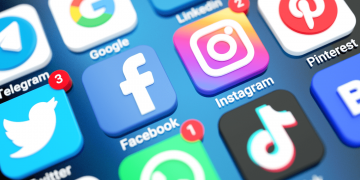In today’s digital age, where consumers are inundated with marketing messages from all directions, the ability to cut through the noise and establish meaningful connections with your audience is crucial. Email marketing, when executed with precision and personalization, can be a powerful tool for driving conversions, nurturing customer relationships, and fostering long-term brand loyalty.
Understanding the Role of Personalization
Personalization in email marketing goes beyond simply addressing recipients by their first name. It involves tailoring the content, timing, and tone of your emails based on individual preferences, behaviors, and demographics. By delivering relevant and timely messages that resonate with each subscriber, you can enhance engagement levels and increase the likelihood of conversions.
Crafting Personalized Email Campaigns
Successful personalization starts with data. Leverage customer data collected through sign-up forms, purchase history, browsing behavior, and interactions with previous emails to segment your email list effectively. Segmenting allows you to group subscribers into categories based on shared characteristics, interests, or actions, enabling you to deliver targeted content that meets their specific needs and expectations.
Tailoring Content to Customer Preferences
Once you’ve segmented your email list, create personalized content that speaks directly to each segment’s interests and preferences. Use dynamic content blocks to customize product recommendations, promotional offers, and relevant content based on past purchases or browsing history. Craft compelling subject lines and email copy that align with the recipient’s interests and motivations, capturing their attention from the moment they open your email.
Optimizing Email Automation
Automation plays a pivotal role in scaling personalized email marketing efforts while maintaining relevance and timeliness. Implement automated workflows triggered by subscriber actions, such as welcome emails, abandoned cart reminders, post-purchase follow-ups, and birthday greetings. Use behavioral triggers and conditions to send the right message to the right person at the right time, maximizing engagement and conversion opportunities.
Building Targeted Email Lists
Building a targeted email list is essential for effective personalization. Encourage website visitors to subscribe to your email list by offering incentives such as exclusive discounts, valuable content downloads, or early access to new products. Use progressive profiling techniques to gather additional information about subscribers over time, enabling you to refine your segmentation and deliver more personalized experiences.
Leveraging Advanced Personalization Techniques
Beyond basic personalization, leverage advanced techniques such as predictive analytics and AI-driven algorithms to anticipate customer preferences and behaviors. Use predictive modeling to forecast future actions, such as likelihood to purchase or churn, and tailor your email content and offers accordingly. Implement machine learning algorithms to continuously optimize email campaigns based on real-time data and performance metrics.
Measuring and Iterating for Success
Effective personalization hinges on continuous measurement, analysis, and iteration. Monitor key performance indicators (KPIs) such as open rates, click-through rates, conversion rates, and revenue generated per email campaign. A/B test different personalization tactics, subject lines, content formats, and call-to-action buttons to identify what resonates best with your audience. Use insights gained from analytics to refine your strategies and enhance future campaigns.
The Impact of Personalization on Customer Relationships
Ultimately, personalization in email marketing is about building stronger, more meaningful relationships with your audience. By demonstrating that you understand their preferences, anticipate their needs, and value their individuality, you can foster trust and loyalty over time. Tailored communications that deliver relevant content and personalized experiences not only drive immediate conversions but also contribute to long-term customer retention and advocacy.
Incorporating personalization into your email marketing strategy is not just a trend but a fundamental shift towards customer-centricity and relevance. By harnessing the power of data-driven insights, automation, and advanced personalization techniques, you can create email campaigns that resonate deeply with your audience, drive engagement, and deliver measurable business results. Embrace personalization as a cornerstone of your email marketing strategy to cultivate stronger customer relationships, enhance brand loyalty, and achieve sustained growth in today’s competitive digital landscape.






